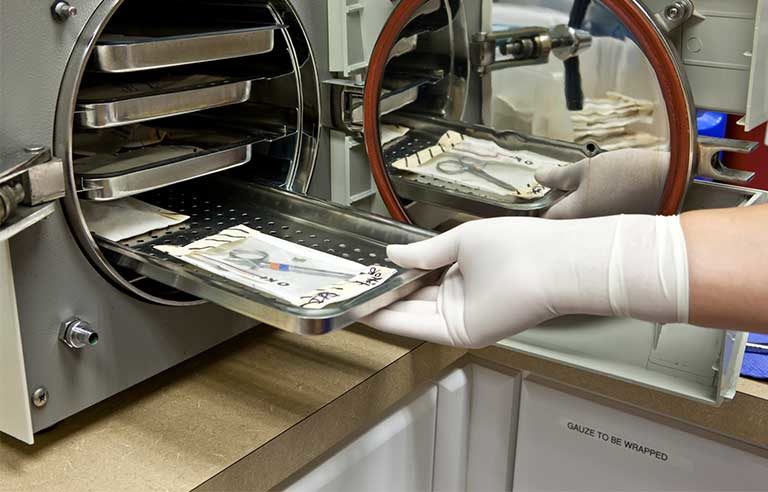Despite PPE, medical instrument sterilization workers may be exposed to blood, tissue and fluids

Arlington, VA — Workers who process reusable medical instruments and equipment may be regularly exposed to tissue, blood and patient fluids – even when wearing personal protective equipment, results of a recent study suggest.
Researchers from Ofstead & Associates, an independent research company, oversaw a pilot study in which moisture-detection paper was affixed to PPE of workers and environmental surfaces in the sterile processing department of a large, urban hospital. Common tasks tested included filling a sink, brushing a ureteroscope and using a power sprayer to rinse a sink basin.
For all but one of the simulated sterile processing activities, splash generation and droplet dispersal were detected at least 3 feet from the sink and, in some cases, as much as 5 feet. In addition, currently recommended PPE – even when properly donned and doffed – didn’t adequately protect the workers from exposure to water and cleaning solutions.
The researchers say additional research is needed to support evidence-based guidelines for safe processing.
In a press release from the Association of Professionals in Infection Control and Epidemiology, lead study author Cori L. Ofstead, president and CEO of Ofstead & Associates, described various solutions to protect workers who process reusable medical instruments and equipment.
“A combination of engineering solutions such as physical barriers and automated cleaning systems, better protective gear, and splash/exposure-reducing practices is needed to reduce environmental contamination and personnel exposure in sterile processing and endoscopy departments,” Ofstead said.
The study was published online Dec. 2 in the American Journal of Infection Control.
Post a comment to this article
Safety+Health welcomes comments that promote respectful dialogue. Please stay on topic. Comments that contain personal attacks, profanity or abusive language – or those aggressively promoting products or services – will be removed. We reserve the right to determine which comments violate our comment policy. (Anonymous comments are welcome; merely skip the “name” field in the comment box. An email address is required but will not be included with your comment.)

